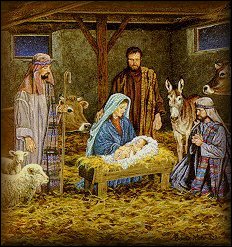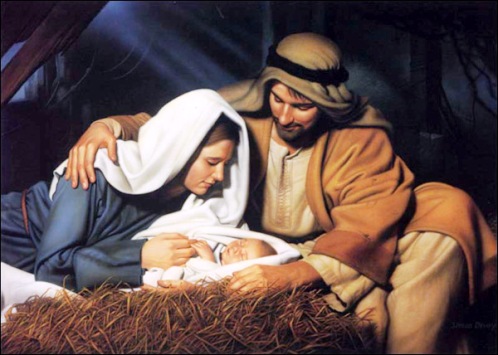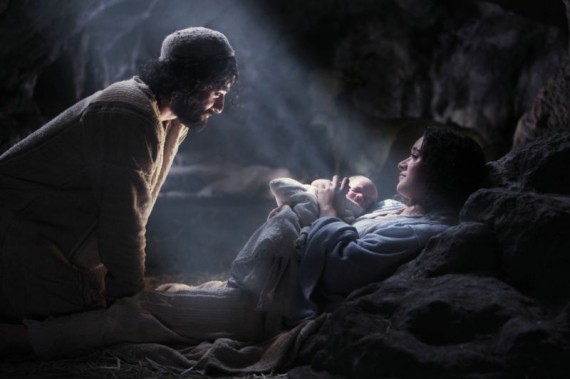If you attend church, sing Christmas carols, send and receive Christmas cards, set foot into any store that is somewhat decorated for Christmas, or watch “Charlie Brown’s Christmas,” you will likely see or hear some reference to the birth of Jesus.
I think, however, that while many people are familiar with the birth story of Jesus, few of us recognize how religiously and politically subversive His birth narrative truly is. The birth accounts of Jesus undermine several core ideas in most religious and political worldviews.
In fact, as you prepare for Christmas, note when, where, and how you see these references to the birth of Jesus, and what these references are connected to. More often than not, these references to the birth of Jesus will be connected to things the birth of Jesus actually undermines.
Modern references to the birth of Jesus often support things that Jesus actually opposed.
 But when we begin to understand the birth of Jesus (and His entire life), we begin to see how politically and religiously subversive Jesus really was. To see some of this, read my studies on Luke 2, and other Christmas posts.
But when we begin to understand the birth of Jesus (and His entire life), we begin to see how politically and religiously subversive Jesus really was. To see some of this, read my studies on Luke 2, and other Christmas posts.
We consider four of these subversive truths below.
1. The Kingdom of Heaven does not support the Kingdoms of this World
One of the most pervasive ideas in nearly all religious and political hierarchies is that God is on their side. Religious and political leaders claim that God has blessed them, their plans, and their goals. Religious and political institutions claim that everything they do is advancing the rule and reign of God on earth.
But usually, the goals and methods of the political and religious kingdoms of this world have little overlap with the goals and methods of the Kingdom of God. Those religious and political leaders which recognize this threat to their power often use the name of God in the attempt to destroy the Kingdom of God.
This is exactly what we see in Matthew 2 when King Herod feels threatened by the birth of a baby boy in Bethlehem, and then uses the claim that he wants to worship the new-born Messiah as an excuse for trying to kill Jesus.
When we truly begin to understand the values of the Kingdom of God, we see that His kingdom has come to overthrow the powers of this world. The Kingdom of God upsets rulers and dominions and powers and authority. It rights what is wrongs, restores justice, and reintroduces righteousness, which are all things the religious and political kingdoms of this world claim to do why they are in fact doing the exact opposite. For more on this, see Wright, “Emperors and Angels.”
2. The Messiah did not come for the rich and powerful
This idea is similar to the one above, but focuses primarily on the leaders themselves. For some reason, we tend to think that the people in positions of power, the people with titles, and the people who get their voice heard are the ones that God has blessed in this world. Most of the leaders believe this too.
But if the birth of Jesus is any indication, one of the greatest lies of the religious and political world is that God is with the rich and powerful leaders. The birth narratives reveal that there were no rich and powerful people with Jesus at His birth.
The Messiah has come for the dishonorable, the outcasts, the uneducated, the poor. This is the kind of family He was born into. These were the settings He was born in, and these are the type of people who first learned of His birth.
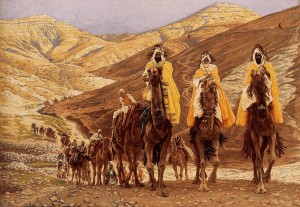 The shepherds were considered by most to be dirty, outcast thieves, and while the wise men from the East are often called “Kings” (though they were likely not kings at all), most people in Israel would have considered them to be religiously unclean, astrology-practicing, sinful foreigners. Modern parallels might be street hustlers and fortune tellers.
The shepherds were considered by most to be dirty, outcast thieves, and while the wise men from the East are often called “Kings” (though they were likely not kings at all), most people in Israel would have considered them to be religiously unclean, astrology-practicing, sinful foreigners. Modern parallels might be street hustlers and fortune tellers.
So before you go envying the people at the top, who seem to be receiving blessing after blessing from God, you might want to take a closer look at the people who live in the gutter, for it there where you are more likely to find God.
3. Jesus often shows up in the most unlikely places
If you were to listen to most of the religious and political rhetoric at Christmas, you might get the impression that Jesus came to support the powerful in their goals for domination, the rich in their quest for year-end bonuses, and the elite in their self-glorifying causes.
But when God began to perform His greatest work in human history, He launched it in an animal feeding trough in the backwoods town of a tiny, poor, insignificant country.
I imagine that if Jesus were to show up again today, it would not be in Washington D.C. or Rome. It would probably be in some poor village of central Africa. If Jesus was born in the United States (or any of the ruling nations in the world … Jesus was born in part of the Roman Empire, after all), it would be to a poor prostitute who is living under a cardboard box in a back alley.

This leads me to believe that if you want to see God today, don’t look on your television, the internet, or in buildings made with marble and brass.
Instead, look where you would least expect him. Look where life is hard and people are dirty. Look among the homeless, the prisoners, the prostitutes, and the drug-addicts.
4. The birth of Jesus turns political and religious values upside-down
Power, greed, and manipulation are three central values of religion and politics. Wayne Jacobsen refers to them as cash, credit, and control. But such things do not describe the birth of Jesus in any way, shape, or form.
The values of Jesus at His birth (and during His entire ministry) did not include getting more wealthy, but in generously giving it away. Jesus did not seek to gain power or credit for Himself, but consistently gave glory to God and spread power among His followers. And Jesus never tried to manipulate or control anyone into doing what He wanted, but taught people that they were free to follow God and live as they pleased within His family.
In times when politicians promise change to the world, followers of Jesus can offer true and lasting change, based not on the principles of power or greed, but on service and generosity.
This Christmas
I am not sure what you have planned for this Christmas, or for the year that follows, but if you want to see Jesus, don’t look for Him among the rich and powerful, or among those who are famous and well-known (whether in political or religious arenas). Instead, look for Him among the poor, the outcast, the overlooked, the sick, and the weak.
And don’t run after fame and glory for yourself, thinking that such things are the way God keeps score. They aren’t. God doesn’t keep score at all. Such things are not God’s gifts to you. Instead, be generous, loving, gracious, and kind, for it is in these things that God reveals Himself to you, and reveals Himself to others through you.
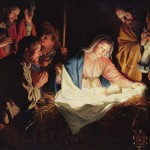
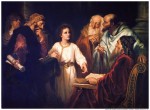
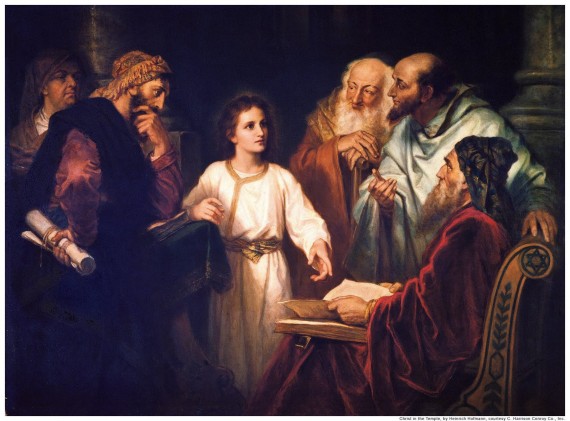
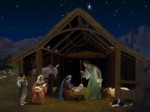
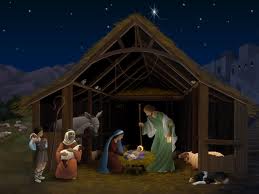 As a child I often remember running outside to play, leaving the door wide open behind me, only to have my mother call after me, “Come back and shut the door! You weren’t born in a barn!”
As a child I often remember running outside to play, leaving the door wide open behind me, only to have my mother call after me, “Come back and shut the door! You weren’t born in a barn!”